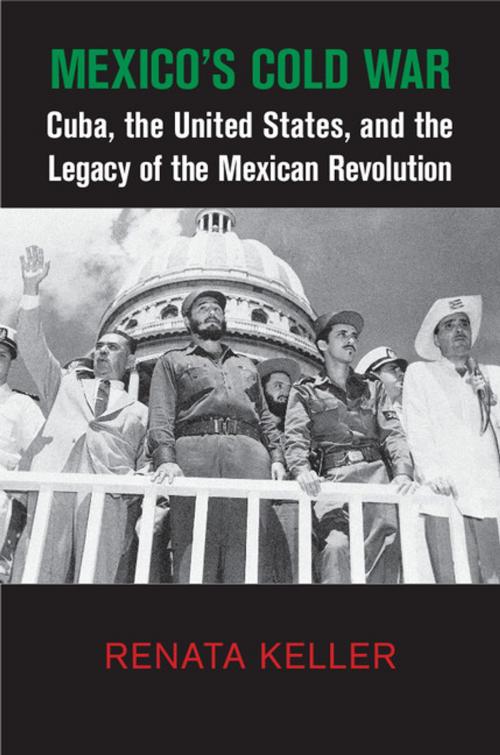Mexico's Cold War
Cuba, the United States, and the Legacy of the Mexican Revolution
Nonfiction, History, Americas, Latin America, Social & Cultural Studies, Political Science| Author: | Renata Keller | ISBN: | 9781316349236 |
| Publisher: | Cambridge University Press | Publication: | July 28, 2015 |
| Imprint: | Cambridge University Press | Language: | English |
| Author: | Renata Keller |
| ISBN: | 9781316349236 |
| Publisher: | Cambridge University Press |
| Publication: | July 28, 2015 |
| Imprint: | Cambridge University Press |
| Language: | English |
This book is a history of the Cold War in Mexico, and Mexico in the Cold War. Renata Keller draws on declassified Mexican and US intelligence sources and Cuban diplomatic records to challenge earlier interpretations that depicted Mexico as a peaceful haven and a weak neighbor forced to submit to US pressure. Mexico did in fact suffer from the political and social turbulence that characterized the Cold War era in general, and by maintaining relations with Cuba it played a unique, and heretofore overlooked, role in the hemispheric Cold War. The Cuban Revolution was an especially destabilizing force in Mexico because Fidel Castro's dedication to many of the same nationalist and populist causes that the Mexican revolutionaries had originally pursued in the early twentieth century called attention to the fact that the government had abandoned those promises. A dynamic combination of domestic and international pressures thus initiated Mexico's Cold War and shaped its distinct evolution and outcomes.
This book is a history of the Cold War in Mexico, and Mexico in the Cold War. Renata Keller draws on declassified Mexican and US intelligence sources and Cuban diplomatic records to challenge earlier interpretations that depicted Mexico as a peaceful haven and a weak neighbor forced to submit to US pressure. Mexico did in fact suffer from the political and social turbulence that characterized the Cold War era in general, and by maintaining relations with Cuba it played a unique, and heretofore overlooked, role in the hemispheric Cold War. The Cuban Revolution was an especially destabilizing force in Mexico because Fidel Castro's dedication to many of the same nationalist and populist causes that the Mexican revolutionaries had originally pursued in the early twentieth century called attention to the fact that the government had abandoned those promises. A dynamic combination of domestic and international pressures thus initiated Mexico's Cold War and shaped its distinct evolution and outcomes.















